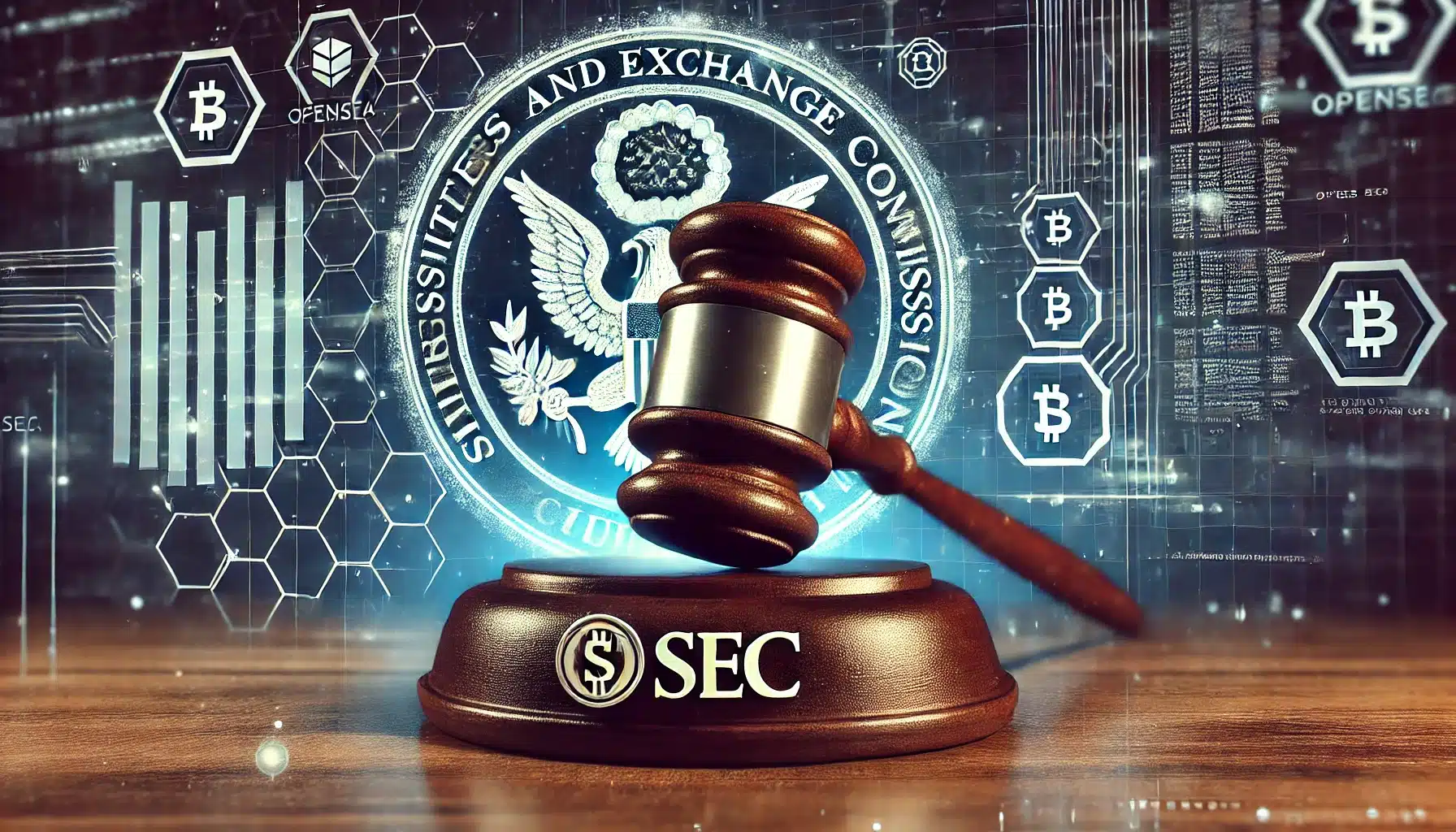Key Insights:
- OpenSea faces SEC action for allegedly facilitating unregistered securities, sparking legal and industry-wide concerns in the NFT market.
- Legal experts suggest the SEC’s focus may be on NFT projects marketed as investments, not on individual digital artists.
- Increased regulatory scrutiny could impact regular NFT artists, raising fears of stifled creativity and unclear guidelines in the crypto space.
On August 28, 2024, the United States Securities and Exchange Commission (SEC) issued a Wells notice to OpenSea, the largest non-fungible token (NFT) marketplace.
This notice indicates that the SEC is considering enforcement action against the platform, alleging that it facilitated the trading of unregistered securities. The move has sparked considerable concern within the crypto community, with OpenSea’s CEO Devin Finzer expressing shock over the SEC’s decision.
OpenSea Responds to SEC’s Actions
OpenSea’s CEO Devin Finzer responded to the SEC’s Wells notice by indicating that the platform is prepared to challenge the allegations in court rather than seek a settlement. Finzer criticized the SEC’s approach as “regulation by enforcement” and raised concerns that the agency is entering “uncharted territory” by targeting NFTs. He further warned that this regulatory stance could risk “hundreds of thousands of online artists and creatives.”
Finzer’s comments echo broader frustrations within the crypto industry, where there is growing concern over the lack of clear regulatory guidance. The CEO’s remarks suggest that OpenSea intends to push back against the SEC’s interpretation of NFTs as potential securities, a classification that could have wide-ranging consequences for the NFT market.
Legal Experts Weigh In on the SEC’s Focus
Legal professionals have provided insights into the SEC’s focus on NFT marketplaces like OpenSea. According to Grant Gulovsen, a U.S. lawyer with expertise in the tech and crypto sectors, the SEC is likely concentrating on specific NFT collections that were promoted as investment opportunities.
Gulovsen suggests that the SEC’s primary concern may not be the digital art itself but rather how certain NFT projects were marketed. He noted that the SEC has previously taken action against NFT-related entities that emphasized the investment potential of their tokens, such as the entertainment firm Impact Theory and the animated series Stoner Cats.
Andres Munoz, a litigation partner at Romano Law, explained that NFTs could meet the criteria of the Howey Test—a legal test used to determine whether a transaction qualifies as an investment contract—if they are marketed with promises of future profits.
Munoz pointed out that after the value of certain NFT projects, like CryptoPunks and Bored Ape Yacht Club, increased dramatically, many creators began launching NFT projects as quick-profit schemes. These actions, according to Munoz, could classify certain NFTs as financial products, potentially bringing them under the SEC’s purview as unregistered securities.
Broader Implications for the NFT Market and Artists
The SEC’s actions against OpenSea and similar platforms may have broader implications for the NFT market, particularly for artists who use these platforms to sell their work. Bob Bodily, CEO of the NFT marketplace Bioniq Ordinals, mentioned that NFT platforms are aware of the potential legal risks and have taken steps to moderate their content. Bodily noted that any mention of NFTs as passive investments is generally avoided on these marketplaces, and collections promising financial returns are often delisted.
However, concerns persist that increased regulatory scrutiny could inadvertently affect regular NFT artists who are simply trying to sell their art. NFT artist Javier Arrés expressed worries about the potential impact on individual creators who are not involved in promoting their work as investments.
Arrés emphasized that most digital artists are not well-versed in the complexities of securities law and are primarily focused on selling their digital creations. He criticized certain NFT collections created solely for profit, arguing that these projects have tarnished the reputation of the broader NFT sector.
Calls for Clearer Regulatory Guidelines
The crypto industry has repeatedly called for clearer regulatory guidelines from the SEC. The lack of specific rules for NFTs has led to uncertainty and fear among artists and creators who worry about being caught up in enforcement actions. Various stakeholders, including politicians and crypto exchanges, have been making efforts to push for more straightforward regulations. Coinbase, a major U.S. crypto exchange, has been one of the leading voices in demanding clearer guidelines from the SEC.
Pro-crypto lawmakers have also voiced their concerns about the SEC’s recent actions. Representative Wiley Nickel criticized the SEC’s approach and urged the agency to work with Congress to establish clear and fair regulations. There is a growing consensus within the crypto community that without clear regulatory guidance, the industry risks stifling innovation and driving jobs out of the United States.

